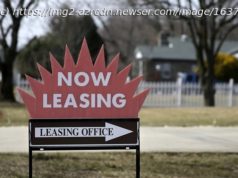Understanding current supply and demand constraints on real estate in Trump economy is vital to help identify potential antagonism against real estate growth
In the beginning of Donald Trump’s presidency, the economy had an optimistic view that a pro-business Republican agenda would alleviate governmental red tape, reduce corporate and personal taxes and spur job creation. Ten months into the administration, we have not seen any significant pro-business legislative agenda items passed. Nevertheless, the real estate market in particular has increased its value on a national level by 6.9 percent so far in 2017 when looking at a year-over-year comparison per Zillow. Increased optimism might be part of the equation. However, larger macro trends such as millennial migration (millennials moving to urban centers) and a growing renter population have been major contributing factors for increased real estate prices nationwide.
Understanding the current supply and demand constraints is vital to help identify potential antagonism against real estate growth. On the supply side we are seeing less home ownership as historic student and credit card debt are not allowing the vast majority of Americans the ability to save for the 20-percent down payment typically needed to purchase a home. Alvaro Mezza, an Economist at Board of Governors of the Federal Reserve System (FRB), finds that a “10 percent increase in student loan debt causes a 1 to 2 percentage point drop in the homeownership.”
On the demand side, strong job growth and low unemployment are giving millennials (individuals born between 1982 and 2004) the option to leave their family home sooner. Unlike prior generations, millennials care more about the proximity to, or availability of, amenities over the size of a house. This group then pushes toward dense urban centers where the price to purchase a first-time home is much more expensive. Thus, renting is the primary option. Across the nation, we are seeing millennials migrate for good-paying, first-time jobs.
Looking ahead, there are three areas where Trump’s agenda could have serious ramifications on the real estate market: increasing interest rates, budget cuts and alterations to the mortgage interest deduction. These changes could further widen the middle class as these changes would reduce government sponsorship for affordable housing and make it harder for people in the lower tax brackets to purchase a home.
Interest Rates
Along the campaign trail, Trump was highly critical of Federal Reserve chief Janet Yellen and her decision to keep interest rates low. Lower interest rates make it easier for borrowers to obtain financing, which in turn increases demand for real estate purchases. Rising interest rates have the opposite effect. Higher interest rates suppress demand and making it harder for first-time homebuyer to purchase a home.
Budget Cuts
The latest version of Trump’s tax plan calls for a $6 billion (13 percent) cut to the Department of Housing and Urban Development (commonly known as HUD). This cut would directly impact federally funded community development grants among others programs which sustain affordable housing projects throughout the nation.
Mortgage Interest Deduction
The Trump administration has voiced support for limiting the use of mortgage interest deductions on their tax returns. The general hypothesis is that weakening this deduction would diminish the incentive for homeownership.
Roughly, there is 65 percent homeownership in the United States today, down 5 percent from 2007.
Rentals have increased for 12 consecutive years.
Miles Deamer is director of investments at AlphaFlow, an online real estate investment platform.
The views and opinions expressed in this commentary are those of the author and do not reflect the official position of The Daily Caller.






